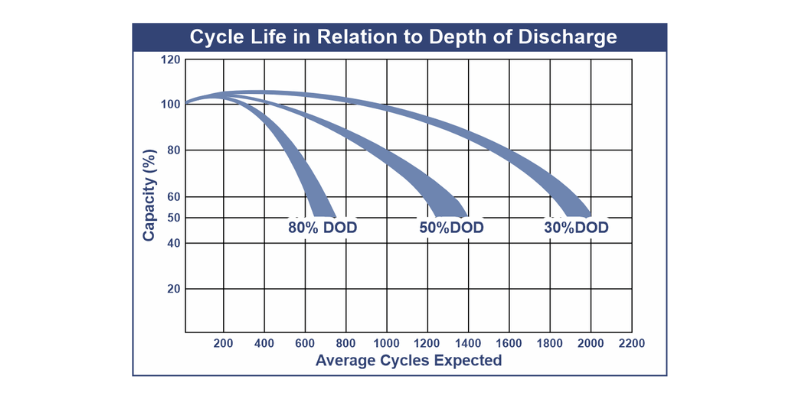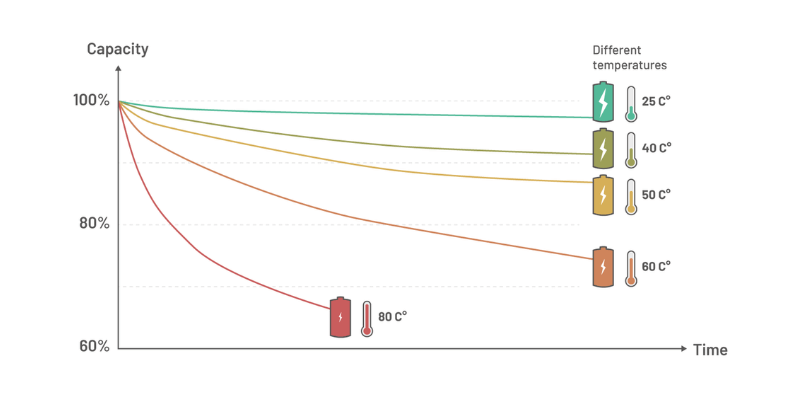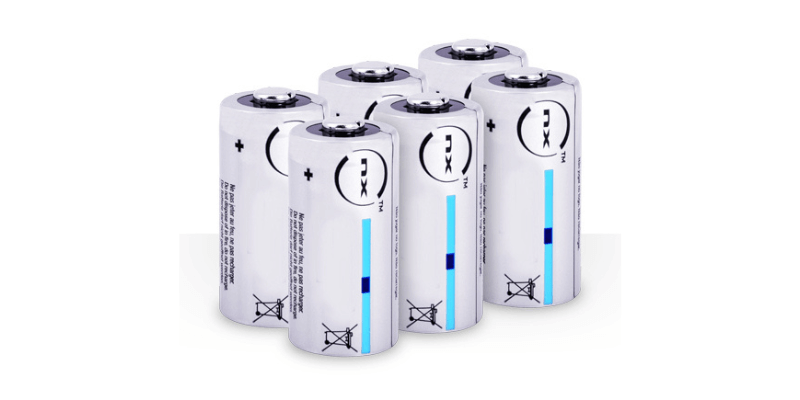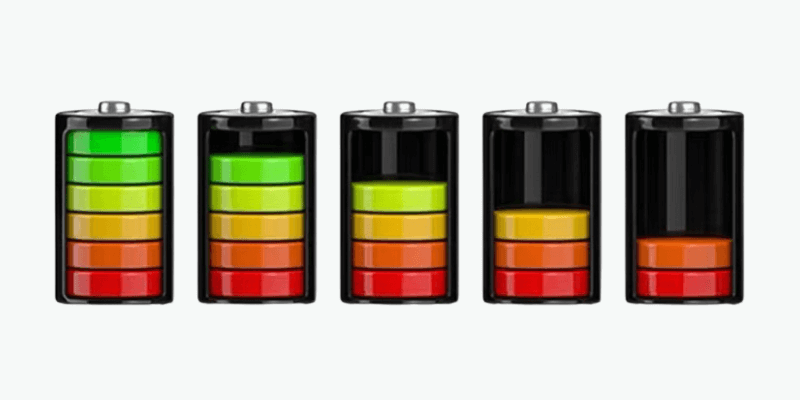Litiumbatterier er avgjørende for enheter som smarttelefoner, bærbare datamaskiner, elektriske kjøretøy og fornybare energisystemer. Forbrukere stiller ofte spørsmål ved hvor lenge disse batteriene varer før de skiftes ut. Denne veiledningen utforsker faktorene som påvirker levetid for litiumbatteri og gir innsikt i deres levetid. La oss dykke inn!
Hva er litiumbatteriets levetid?
De syklusliv av et litiumbatteri refererer til antall lade- og utladingssykluser det kan fullføre før ytelsen avtar.
Under lading beveger litiumioner seg fra katoden til Anode gjennom en elektrolytt og returnere under utskrivning. Denne prosessen degraderer gradvis batteriets materialer, noe som resulterer i kapasitetstap over tid.
Vanligvis definerer produsenter syklusliv som antall sykluser et batteri kan gjennomgå før det beholder omtrent 80 % av sin opprinnelige kapasitet. For eksempel kan et batteri som er vurdert for 500 sykluser lades og utlades 500 ganger før den når den terskelen.

Slik beregner du levetiden til litiumbatterier
Forstå batterispesifikasjonene
Samle informasjon om litiumbatteriet, inkludert dets nominelle kapasitet (ampere-timer, Ah), maksimal lade- og utladningsstrøm, og spesifisert sykluslevetid fra produsenten.
Bestem utladningsdybden (DoD)
DOD indikerer batterikapasitet brukt per syklus. For eksempel, utlading av et 100Ah batteri til 80Ah resulterer i en DOD på 20%. Noen batterier har lengre sykluslevetid ved lavere DODs.
Beregn den effektive kapasiteten
For å finne kapasiteten som brukes per syklus, multipliser batteriets kapasitet med utladningsdybden. For et 100 Ah batteri utladet til 80 %, er kapasiteten per syklus 100 Ah × 0,8 = 80 Ah.
Beregn totale sykluser
Del batteriets kapasitet på utladingsdybden for hver syklus. For eksempel gir et 100Ah batteri med en 20% DOD 500 sykluser (100Ah / 20 / 100) = 500 sykluser).
Vurder batterialdring og miljøfaktorer
Batterilevetiden kan påvirkes av temperatur, lade-/utladingshastigheter og administrasjonspraksis; høye temperaturer eller hurtiglading kan akselerere nedbrytning og redusere levetiden.

Holder litiumbatterier lenger enn andre batterier?
Litiumbatterier utkonkurrerer andre typer batterier, og tilbyr den lengste levetiden blant dypsyklusalternativer.
Her er en oversikt over vanlige litiumbatterityper og deres gjennomsnittlige levetid:
- Litium-ion (Li-ion): Mye brukt i elektronikk og elektriske kjøretøy, Li-ion-batterier varer vanligvis 2 til 10 år.
- Litiumjernfosfat (LiFePO4): Kjent for sikkerhet og lang levetid, LiFePO4 batterier kan vare 5 til 15 år.
- Lithium Polymer (LiPo): Vanligvis brukt i droner og RC-enheter, LiPo-batterier har en levetid på 2 til 5 år.
- Lithium Manganese Oxide (LiMn2O4): Ofte brukt i elektroverktøy og medisinsk utstyr, har LiMn2O4-batterier en moderat levetid på 3 til 7 år.

Hvordan få lengst levetid
For å maksimere litiumbatteriets levetid, vurder disse faktorene:
Temperatur
Høye temperaturer kan forkorte litiumbatterier’ levetid, mens lave temperaturer kan redusere ytelsen. For eksempel kan LiFePO4-batterier fungere mellom -20℃ til 60℃ (-4℉ til 140℉).
Overlading
Overlading av litiumbatterier kan skade dem og redusere levetiden. EN BMS (batteristyringssystem) er essensielt, siden det beskytter mot over- og underlading, balanserer celler, regulerer temperatur og mer.
Ladehastighet
Bruk en lader som oppfyller produsentens spesifikasjoner; hurtiglading kan skade litiumbatterier.
Oppbevaringsbetingelser
Oppbevar litiumbatterier på et kjølig, tørt sted for å forhindre kjemisk nedbrytning.
Unngå fysisk skade
Håndter litiumbatterier forsiktig for å unngå fall, punkteringer eller fuktighetseksponering som kan forringe dem og skape sikkerhetsfarer.

Bør litiumbatterier oppbevares fulladet?
For litiumbatterier, koble dem fra strømkilder, inkludert radioer og klokker, hvis de ikke er i bruk. Oppbevar batteriene med minst 50 % lading; riktig oppbevarte, fulladede batterier kan vare i ett år.
Utløper litiumbatterier hvis de ikke brukes?
Litiumbatterier går ikke ut på dato, men mister 2-3 % av energien sin månedlig når de står uvirksomme under passende forhold. Hvis de lagres for lenge uten lading, kan de bli helt døde. Imidlertid tar denne prosessen tid.
Er litiumionbatterier verdt det?
Litium-ion-batterier er bedre enn bly-syre-batterier på alle måter. De er lettere, kraftigere og har en lavere selvutladningshastighet. I tillegg krever de mindre vedlikehold og varer lenger. Selv om forhåndskostnadene er høyere, er de totale besparelsene betydelige.


